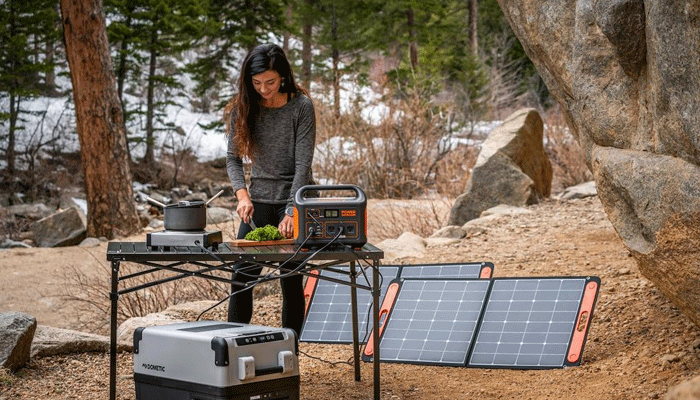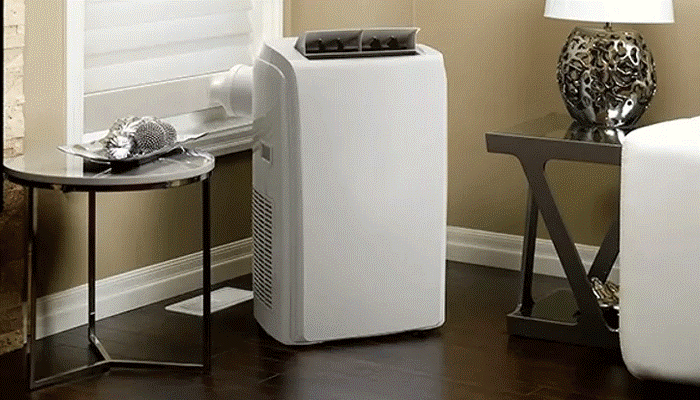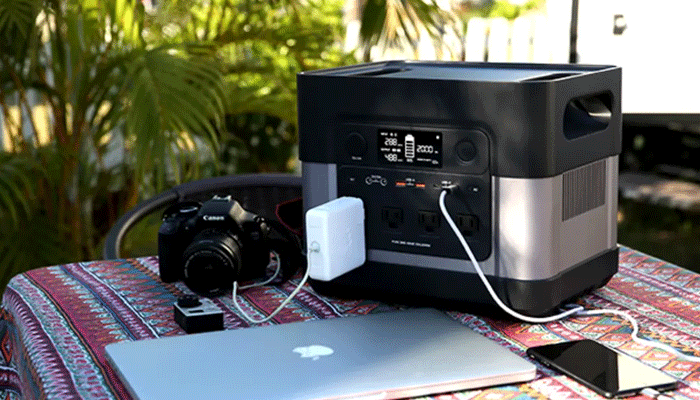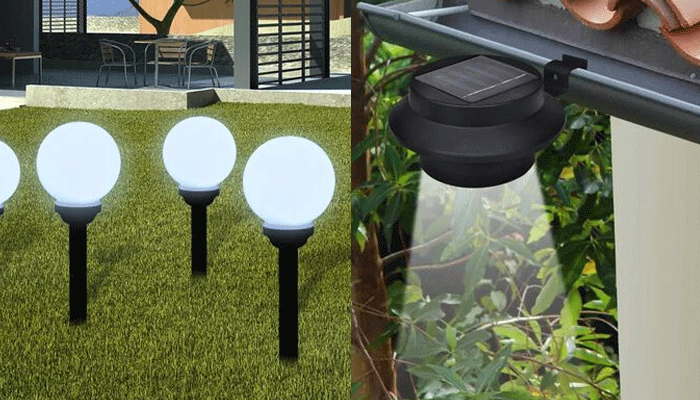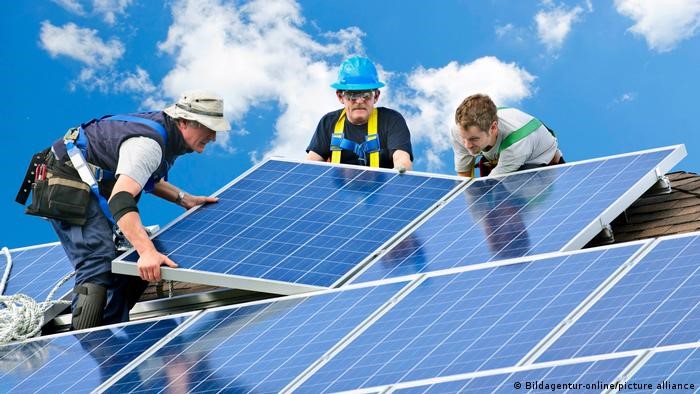
Using solar energy has many benefits for the environment. It reduces greenhouse gas emissions, doesn’t release any noise or toxic substances, and doesn’t require battery storage.
Reduces Greenhouse Gas Emissions
Solar energy, particularly rooftop solar panels, can help cut greenhouse gas emissions. The emissions from fossil fuels are the biggest cause of global warming, and countries are looking for ways to reduce them. In 2012, electricity produced by fossil fuels accounted for 32% of all global emissions. As a result, countries are switching to clean and sustainable generation methods.
The industrial sector generates indirect emissions from electricity. This sector accounts for about one-quarter of all electricity sales in the U.S. and contributes approximately 29 percent of the total emissions from the United States. The industrial sector can reduce its emissions by increasing energy efficiency, switching fuels, and adopting other strategies such as combined heat and power. However, it is important to remember that many industrial processes generate high levels of GHGs.
In addition, solar and wind power plants have much smaller carbon footprints than fossil fuels. However, they only operate at their full capacity ninety percent of the time. Therefore, they are less valuable and more expensive than other renewable sources. In the long run, solar and wind power systems will be worth the investment as they will reduce emissions and costs.
Solar PV systems can dramatically reduce the carbon footprint of a household. Solar power reduces the household’s carbon footprint by reducing its dependency on a power company. The carbon footprint is the total emissions of an individual or a household over a lifetime.
Cleanest Electricity Generation Methods
The development of clean energy technologies and policies is crucial for the fight against climate change. While the electric power industry is one of the leading contributors to greenhouse gas emissions in the U.S., solar technologies are one of the cleanest electricity generation methods. Unlike fossil fuels, solar power does not generate emissions during the production process. As a result, it has a lower carbon footprint than coal and natural gas.
For those looking for efficient solar panels and portable generators, you’ve probably heard of Valley Food Storage Discount Code, the online store that provides a large range of quality foods and electronic items at affordable prices. The use of solar power systems can help reduce greenhouse gas emissions and increase energy security. By 2040, the output of solar power systems could increase by 9,000 TWh, equivalent to about 26 percent of the world’s electricity demand.
Doesn’t Emit Noise
It is easy to assume that solar energy doesn’t emit noise, but this is far from true. The first is through noise control devices. These devices are designed to eliminate noise from the environment by minimizing the frequency of the source of the noise. Another way to control noise is to install noise barriers. These can reduce the overall noise levels of solar energy facilities.
One way to ensure that solar panels don’t emit noise is to place the equipment on concrete pads. This will minimize the noise from solar panels. While these noise limits vary from state to state, they can be challenging to meet in Massachusetts.
Another way to ensure that solar panels don’t emit noise is to install them in a quiet location. Most solar panels don’t generate much noise during the day, but if you’ve put them on a small concrete pad, they may produce some noise at night. During the day, solar panels typically make a low humming noise, which is not bothersome.
However, most homeowners find solar panels to be a better option. They don’t produce noise, require less maintenance, and are easier to install than wind turbines. Wind turbines, on the other hand, require a large area and can pose a danger to the environment. If you’re on a budget, consider the Electronics Coupon Codes. Although wind energy is a renewable energy source, most homes do not have the space to install wind turbines.
Doesn’t Release Toxic Substances
There is a lot of confusion over whether solar energy releases toxic materials or not. Its carbon footprint is much higher than other sources of energy, and scientists are still grappling with the issue. For example, solar panels can release nitrogen trifluoride, which is more toxic to the atmosphere than carbon dioxide. While many manufacturers are trying to minimize this release, the issue is far from resolved.
According to scientists at the Scripps Institution of Oceanography, solar panels may contain potentially harmful chemicals. These contaminants are released during the manufacturing process and the panel’s disposal. These compounds can affect human health, so solar panels should be properly sealed. However, if solar panels become damaged, these materials may leak.
When assessing the carbon footprint of solar energy, it is important to consider the entire life cycle of the system. Emission intensity measures the lifetime total carbon emissions per unit of energy. It is measured in tons of carbon dioxide equivalent per megawatt-hour or kilowatt-hour, and the lower the emission intensity, the better. Hundreds of life cycle assessments have been conducted on solar power’s carbon footprint, including the upstream, operational, and downstream phases of energy production.
Solar panels are manufactured with a variety of chemicals, including silicon tetrachloride. These are critical for manufacturing better solar panels, but they also pose a real environmental and human health risk. When a solar panel is damaged, the chemicals in it can release toxic emissions. In addition, when the panels are disposed of, these chemicals can pollute the environment.
Doesn’t Require Battery Storage
Solar energy does not require battery storage to produce electricity. This is because it does not use fossil fuels or water. Additionally, about 50-60% of the water pollution created by thermoelectric power plants is toxic, which is bad for the environment. Using solar energy panels to produce electricity will help protect the environment and save you money while using less power.
Battery Storage Solutions
Battery storage solutions are also a great way to provide power backup when the grid is down. They are an eco-friendly and renewable solution to staying online during storms. The best battery storage solution will give you enough capacity to run the house on solar power for at least a night.
However, solar energy cannot provide electricity all day long, and it only works when the sun is shining. This means that there will be times when there is little or no sunlight. This also allows solar owners to store excess solar energy that they produce throughout the day and pull it back when they need it. There are many ways to save money on electronics item at 4wd Supacentre Voucher.
While battery storage is important for the environment, it is not a necessity for the environment. It is a personal preference, a new technology, or a regional network limitation. Rather than saving the environment, people may be more concerned about saving money than saving the environment. Battery storage can also increase greenhouse gas emissions, which can be harmful to the environment.
Ultimately, it is the environment that is the biggest loser. Batteries harm the environment because they require fossil fuels. Additionally, a battery is inefficient at storing solar electricity. It costs more energy to store than to use it. As a result, storing solar electricity is a better choice for the environment than battery storage.
Conclusion
As the world starts to use renewable energy sources, the need for batteries will decrease as well. However, this can be a difficult sell. The real customers for battery storage are utilities, independent power producers, and companies running factories and data centers. For the technology to be effective, it must be able to work with the power grid.



